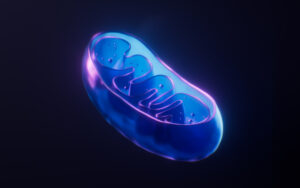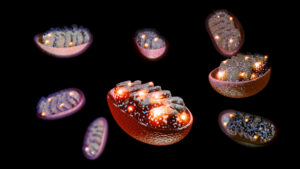By Ryan Ho

Yes, we all know that mitochondria are indeed the powerhouses of the cell. High school biology doesn’t fail us completely, after all.
On a serious note, why aren’t we paying more attention to a major contributor to how our bodies produce energy? Mitochondria play such an important role in the creation of energy in our bodies, to help our cells to function and allow pretty much all of our biological processes to run smoothly.
Essentially, understanding how your mitochondria work helps you understand how your own body produces the energy you need to be alive and kicking.
What exactly are Mitochondria?
Mitochondria are actually tiny cell organelles that perform multiple specific functions. They are found in our human cells. To be more specific, they are found in multiple living beings, such as animals, plants, and fungi as well.
They have 2 separate membranes that work hand-in-hand to produce the majority of the chemical energy required to power your cells’ metabolic processes.
They also contain their own genetic material in the form of mtDNA, which supports proper functioning of the cells and facilitates energy production and metabolic regulation.
Where did they Originate from?
Over a billion years ago, mitochondria were free-living bacteria cells that got “swallowed” by a bigger host cell. However, instead of being digested, they stayed in the host cell to “provide” it with energy. So, mitochondria are just like small ancient roommates living in your cells, helping us stay alive.
As a result of their original DNA being lost or transferred to the host cell’s nucleus, human mitochondria are now left with about 37 genes only.
A fun fact: you only inherit mitochondrial DNA from your mother, and not both your parents, hence your mitochondrial DNA is essentially a genetic “time capsule” from your maternal lineage, bet you didn’t know that!
What do Mitochondria even do?
Energy Production
Most importantly, mitochondria help to fuel the cell through converting chemicals into adenosine triphosphate (ATP) or simply put, energy, which powers all your cell’s activities.
It is worth noting that different cells have varying energy needs, which means that some would require more mitochondria, such as your muscle, brain, kidney, and liver cells, as they need a lot of energy to function.
If your mitochondria don’t work properly – that’s a big part of how you develop diseases, especially in energy-demanding organs.
Signalling
Mitochondria help cells communicate and work with each other, responding to changes in their environment accordingly.
Cell Differentiation
Mitochondria help stem cells to turn into specialized cells, such as muscle or sex cells.
Cell Death (Apoptosis)
Mitochondria can also act as “executioners”, triggering programmed cell death when necessary to eradicate damaged and unnecessary cells. This is especially important to prevent healthy cells from turning into cancer ones.
Cell Cycle and Growth
To round it off, mitochondria also play an important role in regulating cell division and growth. Call it a multitasker if you will!
Why Should we Care about Mitochondria?

They Power our Bodies and Energy Levels
Firstly, let me reiterate that they are the “power plants” of our bodies and fuel everything our bodies do. Without them, our cells literally could not function properly. They are the living (and breathing, pardon the pun) reason why we need to supply oxygen to our bodies, in order to burn nutrients and create energy that we need to survive.
They Keep Us Healthy
Mitochondria assist muscle contraction and blood clotting by regulating cellular calcium levels. Neurons in our brain rely on mitochondria for proper excitation – we literally can’t think without them. Our immune cells must have well-functioning mitochondria to protect us from pathogens without triggering autoimmune diseases. And there is still much, much more that mitochondria do to protect our health.
They are Directly Linked to Diseases
Mitochondrial dysfunction, on the other hand, is related to conditions such as heart disease, cancer, neurodegenerative diseases, and rare genetic disorders affecting key organs such as the heart and brain.
Mitochondria are at the very heart of our body’s energy production, playing a crucial role in nearly every aspect of our health, and it’ll really be a shame to overlook their overall importance for the healthy functioning and maintenance of our bodies.
Understanding and optimizing mitochondrial function would certainly be integral to improving health outcomes and advancing medical progress.
At Miphic, our first-of-its-kind mitochondrial precision medicine platform is primed to make such diagnostics of mitochondrial function accessible for everyone. Spanning from drug discovery and personalized medicine to metabolic research, our cutting-edge imaging-based technology provides comprehensive insight into mitochondrial activity under various conditions.


